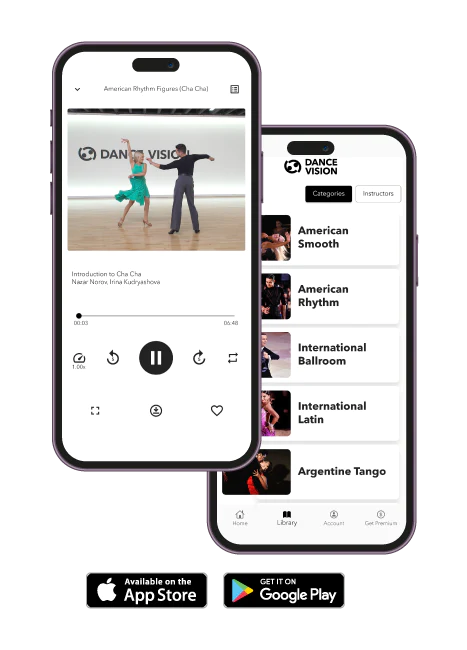K-pop, short for Korean Pop, stands as a music genre originating from South Korea, encompassing diverse styles such as pop, hip-hop, R&B, electronic, and beyond. Recognizable for its infectious melodies, striking visuals, and intricate choreography, K-pop has garnered global acclaim.
Artists within the world of K-pop are commonly referred to as K-pop idols, meticulously trained by entertainment companies. These idols undergo rigorous training in singing, dancing, language acquisition, and sometimes acting before making their debut as part of a group. Read the 2024's top K-pop idols to know more about them.
Origins and Evolution
K-pop's inception in the early 1990s in South Korea coincided with significant cultural and economic transformations, fueled by the government's emphasis on cultural exports under the "Korean Wave" or "Hallyu" strategy. Initially inspired by Western pop, particularly American and European styles, K-pop gradually cultivated its distinct sound by blending pop, hip-hop, R&B, electronic dance music, and traditional Korean elements, captivating audiences globally. Influential acts such as Seo Taiji and Boys, H.O.T., and Sechs Kies played pivotal roles in shaping K-pop's early landscape, pioneering experimentation with diverse musical genres and pioneering production techniques, setting the stage for its expansion and evolution.
Culture Impact
K-pop's cultural influence extends globally, shaping music, fashion, and entertainment trends. Its catchy tunes, captivating performances, and visuals introduce Korean culture worldwide. The "K-pop community," united across borders by fandom, actively engages with content on social media and streaming platforms, amplifying the genre's popularity. Moreover, K-pop has challenged traditional notions of masculinity and femininity, with artists often pushing boundaries in terms of fashion, beauty standards, and gender expression.
Unique Characteristics
1. Idol Culture
Idol culture in K-pop involves entertainment agencies grooming young talents to become pop idols through intensive training in singing, dancing, and more. These multi-talented performers foster close connections with fans through interactions and social media, contributing to K-pop's global success.2. Visuals and Choreography
Visuals and choreography are integral to K-pop, distinguishing it from other genres. Meticulously crafted music videos feature stunning visuals, elaborate sets, and intricate storytelling, enhancing the song's narrative and shaping the artist's image and brand. Moreover, highly synchronized choreography is a hallmark of K-pop, often iconic and synonymous with the song. Idols undergo rigorous training to perfect these routines, showcasing skill and precision onstage.
3. Fan Engagement
Fan engagement is central to K-pop, with artists and management actively connecting with fans through social media, fan meetings, and interactive events. Fans contribute to artists' success through streaming, purchases, and participation in fan-driven projects, creating a dedicated and supportive community. This mutual appreciation enhances the overall K-pop experience.
4. Multilingualism
Multilingualism in K-pop allows artists to connect with diverse audiences globally, releasing music in various languages and collaborating with international artists. This enhances accessibility and resonance on the international stage, contributing to the genre's widespread popularity.
5. Fashion and Beauty Trends
K-pop artists are renowned for their daring fashion choices, influencing global trends from stage costumes to streetwear. They're also trendsetters in beauty, experimenting with bold looks that attract attention and spark trends. Collaborations with fashion brands solidify their influence, as they often serve as brand ambassadors in advertising campaigns and fashion shows.
6. Music Variety and Experimentation
K-pop's eclectic sound and constant innovation set it apart. Embracing diverse influences like pop, hip-hop, R&B, and traditional Korean music, K-pop seamlessly blends genres to create captivating tracks. Artists and producers push boundaries, incorporating unconventional elements for fresh sounds. Additionally, releasing music in multiple languages expands their global reach, showcasing K-pop's versatility and appeal.
7. Training System
The K-pop training system is distinctive, covering singing, dancing, language, and sometimes acting. Aspiring idols undergo rigorous coaching from professionals to develop into well-rounded performers. Known for its strict discipline and high standards, this training ensures idols possess the talent and professionalism for success. Additionally, trainees often form close bonds, shaping the identity and cohesion of K-pop groups.
8. Global Collaboration
Global collaboration is a defining feature of K-pop, with artists frequently teaming up with international talents to create diverse and innovative music. This cross-cultural exchange brings fresh perspectives to the music production process, broadening K-pop's global appeal. Overall, global collaboration is crucial to K-pop's success, enabling artists to reach worldwide audiences and drive the genre's continued growth on the global stage.
Global Influence
K-pop's global reach extends far beyond Korea, with artists consistently dominating international charts and setting streaming records on platforms like YouTube and Spotify. Through collaborations with global artists and producers, K-pop facilitates cultural exchange and introduces Korean pop music to diverse audiences worldwide. Amplified by dedicated fan communities on social media, K-pop not only influences music trends but also shapes fashion, beauty, and entertainment worldwide. As a cultural ambassador, K-pop promotes Korean culture internationally, fostering positive perceptions of South Korea and its people.
Challenges and Controversies
1. Mental Health Struggles
Mental health struggles among K-pop artists are a significant controversy due to the industry's intense pressure, demanding schedules, and scrutiny. Factors such as sasaeng fans, strict regulations, and the need to maintain a perfect image further exacerbate these challenges, highlighting the darker side of the industry. While awareness is growing, effectively addressing these issues remains an ongoing challenge.
2. Exploitative Contracts
Exploitative contracts in K-pop involve lengthy agreements that grant entertainment agencies extensive control over artists' careers, including their schedule, image, and earnings. These contracts may include unfair terms such as low wages, excessive work hours, and harsh penalties. Additionally, artists often undergo rigorous training and grooming, facing pressure to adhere to strict beauty standards.
3. Sasaeng Fans
Sasaeng fans present a major challenge in K-pop, engaging in obsessive and intrusive behavior that violates idols' privacy and safety. Their actions, which include stalking and hacking personal information, can cause emotional distress and jeopardize the well-being of idols. Efforts to address this issue involve increased security measures and legal action, but managing the phenomenon remains an ongoing challenge for the industry.
4. Bullying and Harassments
Instances of verbal abuse, exclusion, cyberbullying, and physical violence can have detrimental effects on the mental health and well-being of idols. Efforts to address this issue involve implementing strict policies, promoting a supportive environment, and providing mental health support, but overcoming these challenges requires collective efforts from industry stakeholders.
5. Dating and Relationship Bans
Idols are often prohibited from dating to maintain their public image and appeal to fans. These bans can lead to feelings of isolation and frustration among idols, impacting their personal lives and mental health. Additionally, they may hinder genuine connections with fans and romantic partners. Despite criticism, dating bans remain prevalent in the industry, though some agencies have begun to relax or abolish them in response to changing attitudes.
Future Outlook
In the future, K-pop will continue to grow globally as artists collaborate internationally and explore new musical styles. The genre's influence will be amplified through digital platforms, fostering fan engagement and diverse representation. Efforts to support artists' mental health and promote inclusivity will be prioritized, while K-pop's role as a cultural ambassador for South Korea will strengthen, shaping the global music industry and popular culture for years to come.
And with that, we wrap up our exploration of the dynamic world of K-pop. To delve further into the excitement and creativity of K-pop, keep dancing, keep exploring, and let the rhythm of K-pop continue to inspire you!

